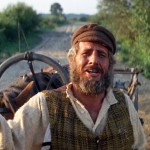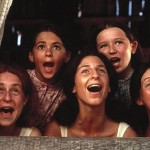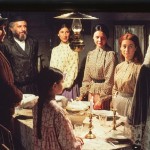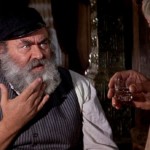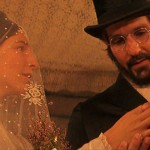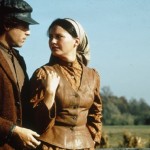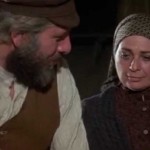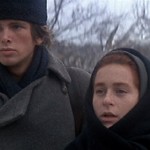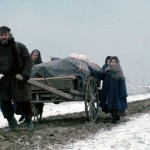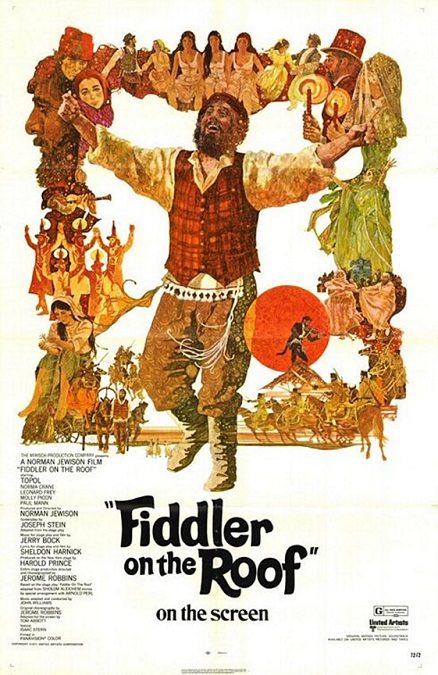
Fiddler on the Roof – 1971
I am generally a fan of musicals, however, in my opinion, there haven’t been many good ones in recent years. As a result, I have somewhat lost my love for them. But then I see this one. I haven’t seen it in a very long time, and suddenly I am reminded why I enjoy them so much. Sometimes music is the best way to convey powerful emotion. If the music is good, if it is well-written and well-performed, it can take the emotion of a character beyond what simple words are able to. Music sometimes has the uncanny ability to touch our hearts in a way that words cannot. The masterful musical arrangements by none other than John Williams, himself, didn’t hurt.
The music for Fiddler on the Roof was done right. It is beautiful, and at times, surprisingly powerful. Over the course of the story, it ranged from exciting to fun, from hopeful to depressing, from joyful to solemn. The actors who performed the songs were, I’ll admit, were a bit of a mixed bag. Some of them were very good, but others had voices that were not. But strangely enough, even this was appropriate, adding to the realism of the film.
The casting was spot on. The film follows the story of the main protagonist, Tevye, played by Israeli actor, Topol. He is a hard-working, but extremely poor man with a sharp-tongued wife named Golde, played by Norma Crane. They have five daughters, but really, only the eldest three are important to the plot. They are Tzeitel, Hodel, and Chava, played by Rosalind Harris, Michele Marsh, and Neva Small, respectively.
They live in the poor village of Anatevka. It is 1905 and the village is made up of a small section of Orthodox Jews, and a larger section of Russian Orthodox Christians. For the most part, the two groups leave each other alone, but eventually the peace is broken by the Russian Revolution of 1905. But all that is just a backdrop for the real drama of the plot. The Jews live their lives according to the strict traditions handed down to them by their ancestors. The main issue is the tradition of matchmaking. The father is supposed to have the final say on who his daughters will marry.
However, Tevye’s daughters each have ideas of their own. Afraid of being matched to old men, they want to marry for love. The each choose husbands of their own, and Tevye is forced to give up his fatherly rights to make way for a more modern way of thinking. He is a religious man, and often prays to God, discussing his problems. When he does, it seems like he is breaking the fourth wall and talking directly to the audience.
Tevye arranges for his eldest daughter, Tzeitel, to marry the old but wealthy town butcher, Lazar Wolf, wonderfully played by Paul Mann. Instead, she convinces him to let her wed her childhood sweetheart, the poor tailor, Motel Kamzoil, splendidly played by Leonard Frey. Hodel falls in love with Perchik, played by Michael Glaser, a radical Marxist from Kiev, and after his arrest at a workers’ rally and subsequent exile to Siberia, she leaves home to be with him. Chava falls in love with a Christian Orthodox peasant named Fyedka, played by Raymond Lovelock, and elopes with him against the strict wishes of her father. For her act of defiance and betrayal, Tevye disowns her.
The realism of the sets and costumes was incredible. The dim and gritty color palette used by the production designers enhanced the film’s authenticity. The only really bright color I remember seeing was the red tapestry in the Jewish temple, displaying the Star of David, and the lush greens of the glade in which Motel and Tzeitel’s love for each other is allowed to bloom. Aside from those things, the gray skies and the muddy streets dominated the screen.
The songs were wonderful and memorable, some showing off a decidedly Jewish flare. The dancing in the song To Life was really exciting and fun to watch. Great songs like If I Were a Rich Man, Matchmaker, Miracle of Miracles, Sunrise, Sunset, Do You Love Me, and even the depressing Anatevka, which closed the film, are easy to listen to. And while I’m on the subject, the bleak and sad ending was enough to bring a few tears to my eyes. And yet, it held a glimmer of hope for a better life as well. Director Norman Jewison really knew what he was doing.
The whole cast did a fine job, but I have to mention two stand-out performances. Leonard Frey was wonderful as Motel, the young boy struggling to become a man. He had an innocence about him, but also a strength that was endearing. But really, Topol’s portrayal of the main character, Tevye, stole the show. The part seemed to be written for him. True, that might be because he was the only character whose inner thoughts were ever given voice, but he played his part so well and believably, that he was really amazing to watch. As a viewer, I really felt like I got to know his character intimately. Well done Topol!
